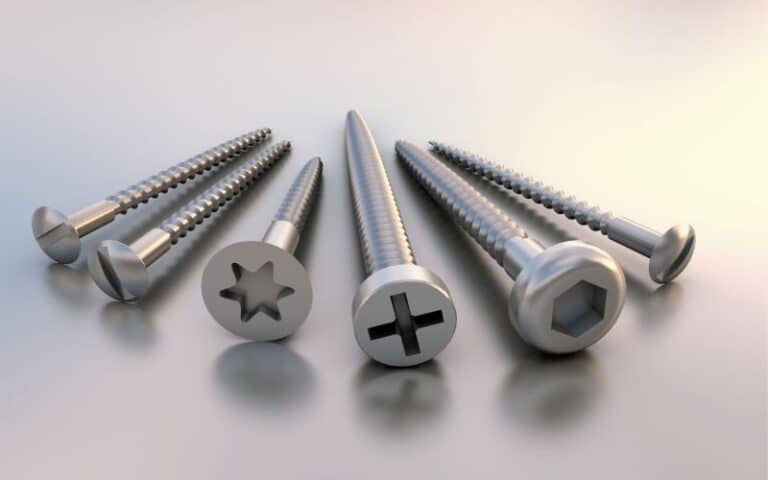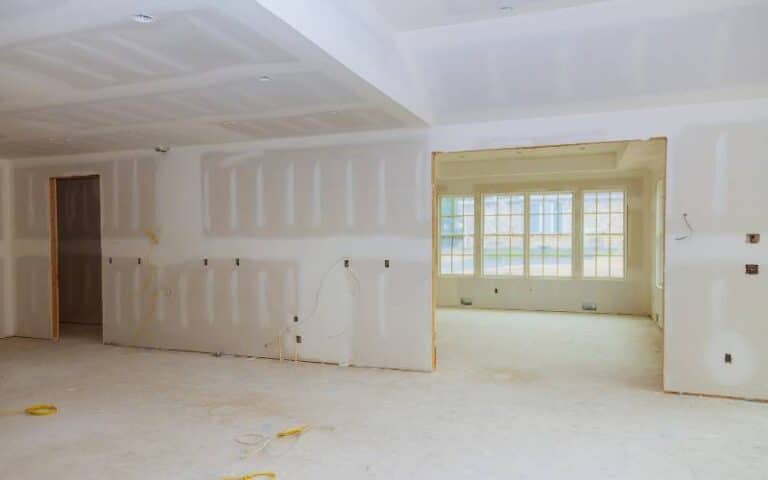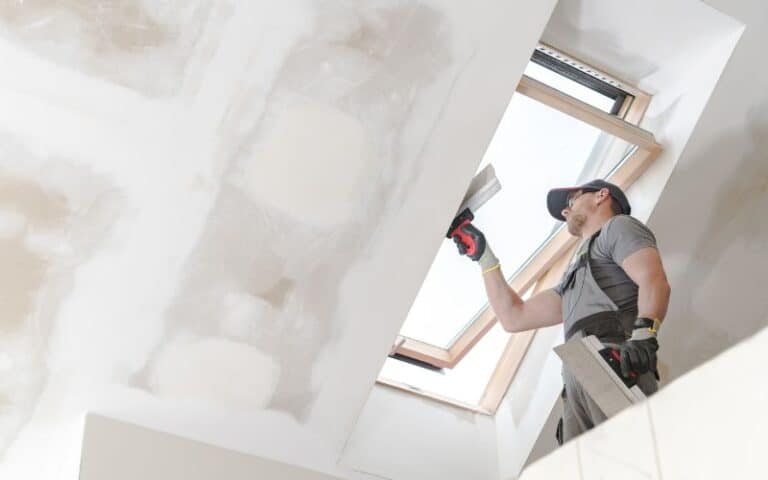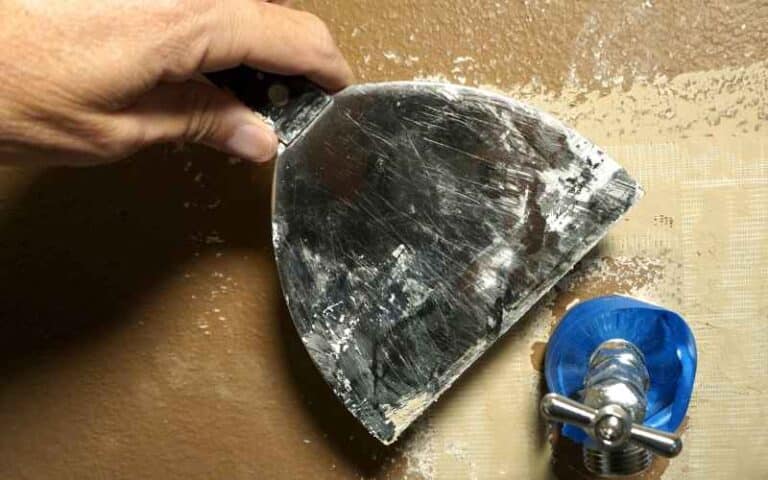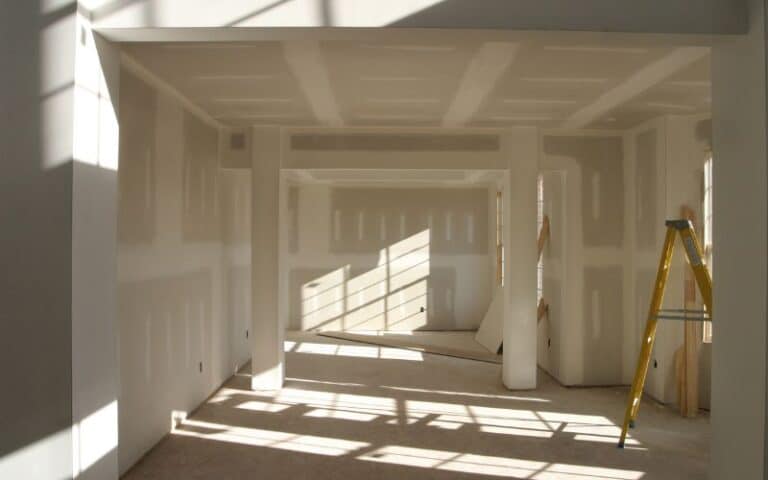It’s frustrating to purchase new drywall screws only to discover that they break after a short time of use.
But you wonder why this keeps happening, given that these screws are constructed from hardened steel. So what could be responsible for the brittleness of drywall screws? Let’s find out!
Drywall screws are brittle because they are made from hardened steel. Hence, they break when you subject them to excessive stress. Also, they break when you tighten them too much and install them too deep into the wall.
This article provides a comprehensive guide to the reasons for the brittleness of drywall screws and where and where not to use them. So, hang on tight and read further to discover more!
Ready for a Drywall Quiz?
Why Do Drywall Screws Keep Breaking?
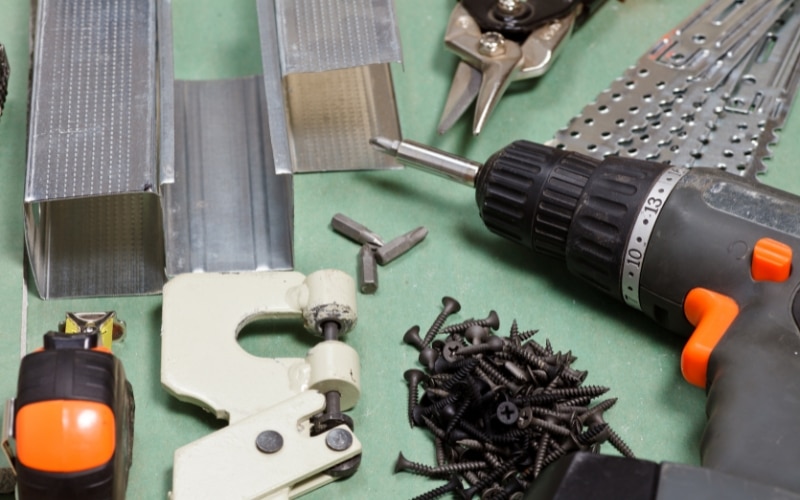
Drywall screws keep breaking when you constantly subject them to excessive use.
Admittedly, many homeowners who want to perform a little DIY project are often enthusiastic about purchasing new drywall screws.
Unfortunately, they are disappointed when the screws fail them by breaking easily.
Due to the size, appearance, and construction of the screws, many homeowners usually have high expectations for them.
Therefore, they assume that these screws can handle just about anything. But that’s not the case, as they can only handle a specific weight and pressure.
So due to these expectations, many homeowners forget to check the basics of drywall screws.
Although drywall screws emanate from hardened steel and have high tensile strength, they are highly susceptible to breaking under high pressure.
One of the crucial basics of drywall screws is their maximum weight. Checking the maximum weight of drywall screws is vital for every construction project you want to perform.
Every drywall screw has a specific weight it can handle. Hence, the screw will break or pop out if the weight of the material surpasses its limit.
For instance, suppose you want to use drywall screws for your ceiling. You must estimate the maximum weight the screws can handle and the entire weight of the ceiling.
If the weight of the ceiling exceeds the weight of the drywall screws, settle for other screws that can handle the weight of the ceiling.
It’s not advisable to compromise and use the drywall screws despite your analysis, as you might jeopardize the entire project.
Furthermore, you might waste a lot of money on repairs and reconstruction.
Plus, you must exercise caution when installing the screws into the wall or ceiling, as they might break when you install them too deep.
In addition, it’s best to purchase high-quality drywall screws from a trustworthy manufacturer. It’s not wise to settle for low-quality drywall screws as they have devastating effects.
Plus, always make proper inquiries about drywall screws from your friends and family and reviews from people who have used them to purchase the best ones.
This way, you can avoid purchasing the wrong drywall screws, wasting a lot of money, and saving yourself the stress of reconstruction.
Are Drywall Screws as Strong as Wood Screws?
Drywall screws are not as strong as wood screws. However, this depends on the construction you want to carry out.
Every screw has its use and specifications, and the same principle applies to drywall and wood screws. Let’s look at these two screws properly before passing the correct assessment.
Drywall screws are mainly manufactured from hardened steel, making them tough and brittle simultaneously.
On the other hand, wood screws are strong and often manufactured from bronze, copper, nickel, and brass materials.
Hence, these screws have high tensile strength, can withstand a lot of pressure, and don’t break easily.
More often than not, many homeowners that want to construct a captivating interior design for their drywall use drywall screws. In other words, drywalls are specifically designed for drywalls.
The reason for this is simple! Drywall is a delicate material that requires the right materials during construction.
Hence, drywall screws usually fit the job perfectly as it holds the drywall for a long time. But that’s not the case for wood screws.
Because wood screws are tough, they will adversely affect your drywall if you use them. Hence, they are not suitable for drywall.
In the same way, drywall screws are unsuitable for woodwork because they are brittle.
Using drywall screws for your woodwork will damage the entire construction as the screws cannot withstand the large weight and pressure.
Unlike drywall screws, wood screws are versatile and can be used in almost every woodwork.
That’s why most constructors use wood screws for doors, kitchen cabinets, and other works.
Meanwhile, they use drywall screws for ceilings and drywalls.
Notwithstanding, the table below provides a proper examination of drywall screws and wood screws.
| Drywall Screws | Wood Screws |
|---|---|
| They are mainly constructed from hardened steel. | They are constructed from bronze, nickel, brass, and copper. |
| They are hard and brittle. | They are tough and not susceptible to breaking. |
| They are majorly used for drywall and ceilings. | They can be utilized for other woodwork, such as doors. |
| They are usually thin. | They are usually thick. |
| They cannot handle a lot of weight. | They can handle a lot of weight. |
The comparison in the table above will help you to distinguish between drywall and wood screws and make the best choice for your construction project.
This comparison does not in any way discredit drywall screws; it’s just depicting the fact that they have specific areas of use.
Therefore, you must always use the appropriate screws for your construction project.
How to Reinforce Drywall Screws?
Many homeowners who want to embark on a DIY project often have trouble installing drywall screws.
When they finally install the screws, another problem creeps up as the screws pop out or break. But why does this unfortunate incident keep happening?
Your drywall screws keep popping out or breaking when installed too deep into your drywall.
Hence, this creates an even bigger space, making it difficult for another drywall screw to enter and fill it.
But how exactly can you close up this space? In this scenario, you can purchase other drywall screws that are bigger than the previous ones.
However, it’s imperative to reinforce the drywall screws for a permanent solution. To do this, you must purchase a drywall anchor.
This anchor will enable you to seal the space in your drywall.
You must perform the procedure below to reinforce the drywall screws.
- First, purchase a high-quality drywall anchor from a trustworthy manufacturer.
- Ensure the anchor fits the size of the space/hole in your drywall.
- Gently insert your drywall anchor into the space/hole in your drywall.
- Tap on the drywall anchor using a hammer until it’s rigid and flush with your drywall.
- Afterward, drive your drywall screw into the anchor to secure the material and prevent further damage.
Do You Need Pilot Holes for Drywall Screws?
Using pilot holes for your drywall screws depends on how you want to construct your drywall.
Some homeowners drill pilot holes into their drywall, while others do not.
For instance, if you want to use wall anchors, there’s no need to drill pilot holes for your drywall screws. However, if you don’t intend to use wall anchors, you must drill pilot holes.
Pilot holes are beneficial as they give your work a neater finishing look. Furthermore, with pilot holes, you don’t have to drill rough holes.
You can take accurate measurements and drill holes that fit your drywall screws. Plus, it saves you the time and stress of drilling directly into your drywall.
The need for a pilot hole also depends on the type of drywall anchor you want to use. If you want to use a threaded drywall anchor, there’s no need for a pilot hole.
You can insert the anchor and drive in the drywall screw. Nonetheless, the decision to use a pilot hole is entirely in your hands, as you can do without it or use it for a smooth construction.
Where to Use Drywall Screws and Where Not to
Drywall screws, as the name implies, are utilized in attaching drywall to studs in the interior of homes.
Although drywall screws are not versatile, you can use them for several construction works.
And these works include the following;
- You can use drywall screws to eliminate the squeaking noise from the floor.
- You can use them to drill pilot holes into any wooden surface.
- They can serve as a substitution for a stopper.
Unfortunately, the uses of drywall screws are exclusive to drywall and are brittle. Hence, you can’t use them for heavy woodwork such as the construction of doors, floors, etc.

